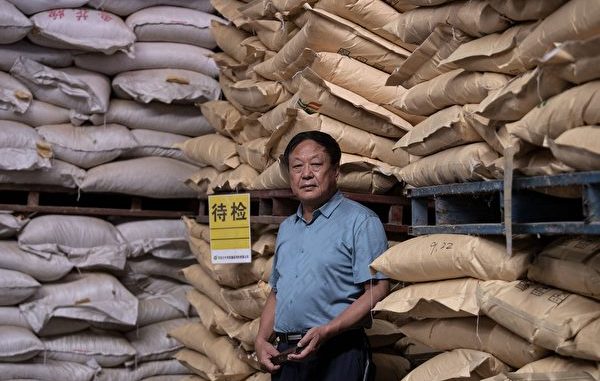
Commentary
On April 15, 2021, in testimony (pdf) before the U.S.-China Economic and Security Review Commission Hearing on “An Assessment of the CCP’s (Chinese Communist Party) Economic Ambitions, Plans, and Metrics of Success,” Miles Yu, the former China policy adviser to former Secretary of State Mike Pompeo, spoke about the Chinese economy and the CCP’s strict control over financial resources, which ultimately endangers successful entrepreneurs.
“In the past 15 years alone, no fewer than 27 Chinese billionaires have been arrested—the charges range from the bizarre to the absurd,” Yu said.
Indeed, Sun Dawu, a well-known private entrepreneur in Hebei Province, is the latest billionaire to be arrested by the CCP.
Sun Dawu May Be Guilty of Words
On April 21, Sun was formally arrested and charged with eight crimes including illegally taking public deposits, gathering crowds to attack state agencies, and illegally occupying agricultural land.
In the early morning of Nov. 11, 2020, the police arrested a total of 28 executives of Dawu Group and its subsidiaries. Nearly all of Sun’s family members—his wife, two sons, and two daughters-in-law—were arrested. The group’s 28 subsidiaries were officially taken over, and almost all of the company’s assets were frozen.
Sun, 66, founded Dawu Group in 1985. The company started with 1,000 chickens and 50 pigs, and by 1995 had become one of the 500 largest private enterprises in China. Dawu Group has more than 9,000 employees, $312 million (2 billion yuan) in fixed assets, and an annual output valued at more than $467 million (3 billion yuan).
Prior to his arrest this year, Sun was sentenced by a CCP court in 2003 to three years in prison, four years of probation, and fined $15,500 (100,000 yuan) for illegally taking public deposits. Dawu Group was fined $46,500 (300,000 yuan).
The real reason for Sun’s arrest this time may be that he made some comments that were offensive to the CCP. For example, in May last year, Sun expressed his admiration online for rights-defense lawyers such as Xu Zhiyong. Sun posted on social media in May 2020, that these lawyers had “shown the victims a little bright light, let them maintain a little faith in the law, and lit up their hope of survival,” according to Voice of America’s Chinese edition.
Xu Zhiyong, one of the founders of Gongmeng, or Open Constitution Initiative, and a Chinese civil rights activist and lawyer, had been arrested in February 2020 for publishing a letter urging Xi Jinping to abdicate and was accused of “subversion of state power.”
Secret Execution of Zeng Chengjie
Zeng Chengjie, a Hunan Province entrepreneur, was the founder of Hunan Sanguan Property Development Company. He was arrested on Nov. 11, 2008, for allegedly “illegally taking public deposits,” and was secretly executed on July 12, 2013. Neither his lawyer nor his family were notified about the execution.
On May 27, 2013, Zeng’s lawyer Wang Shaoguang met with him at the detention center. This would become their last meeting. Zeng said, “Lawyer Wang, I feel my case will not possibly win, because there are very powerful forces behind the scenes that are controlling the ruling of the case. Even if you can get me a reprieve, they will want me dead anyway.”
Zeng was executed on July 12, 2013. The next day, Wang issued an urgent statement and declared that he would take legal responsibility for any falsehood in his statement.
According to Wang’s statement, private financing in western Hunan was supported by the local governments, and 90 percent of local families had participated in the financing. He said that Zeng’s financing agreements were actually notarized by the notary office.
Wang also said that Zeng’s assets, before his arrest, were worth $367 million (2.4 billion yuan), while the unreturned financing was only $31 million (202 million yuan). However, the local government forcibly sold Zeng’s assets for only $58 million (380 million yuan) to Caixin, an asset management company wholly owned by the local government.
Wang said that Zhou Qiang, President of the CCP’s Supreme Court, was governor of Hunan at the time of the case. Zhou was also Party Secretary of the provincial party committee when the Hunan High Court sentenced Zeng to death. The Hunan High Court issued its second instance verdict on Feb. 19, 2012, but it was not approved by the Supreme Court until after Zhou was promoted to president of the court in March 2013, and then the verdict was approved in less than three months.
Based on Wang’s statement, it’s fair to say Zeng’s case was a big injustice. Zhou is the principal person who should be held accountable for Zeng’s murder.
Chongqing Entrepreneur Li Jun Forced to Flee China
Li Jun was the chairman of a large property company, Junfeng Group, with net assets of over $617 million (4 billion yuan) until the company was taken by CCP cadres.
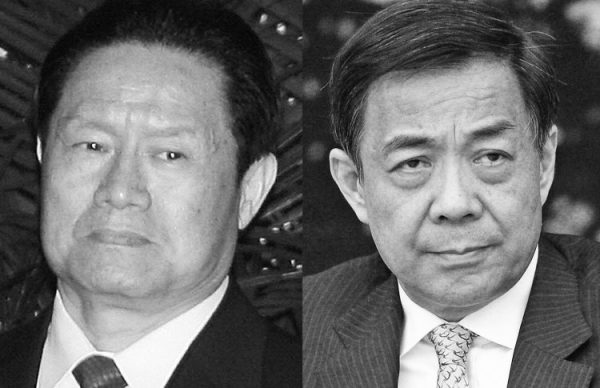
From 2007 to 2012, Bo Xilai, then-secretary of the CCP’s party committee of Chongqing, a major metropolitan city in southwestern China, was launching a campaign in the city called “singing red songs and striking the black society.” During this massive Mao-style campaign, Bo arrested a number of private entrepreneurs and confiscated hundreds of billions of assets from them. Li Jun was one of the entrepreneurs who was arrested.
On Dec. 9, 2011, 20 people in the Junfeng Group received guilty verdicts. Li’s older brother was sentenced to 18 years imprisonment and a fine of over $30 million (200 million yuan) for five crimes including organizing and leading organizations like the black society. The other 19 people were sentenced to terms of imprisonment from 14 months up to 13 years.
The overall verdict says in part: “The property and its proceeds amassed by the triad-like organization as well as the tools used to commit the crimes shall be recovered, confiscated, and handed over to the state treasury.” This means that the Junfeng Group, which Li had worked hard to build for more than 20 years, had been taken away under the guise of cracking down on criminal organizations.
Li himself had been arrested in 2009 and was acquitted. On Oct. 23, 2010, one day before he was to be arrested for the second time, he fled to Hong Kong.
Jiang Weiping, a veteran Chinese media professional now living in Canada, wrote on his own webpage on Feb. 13, 2013, that Li contacted him and sent him copies of his evidence. After Jiang and his friend, a Canadian lawyer, studied and assessed the materials, Jiang believed that this was an unjust case set up by Bo Xilai, then-party chief of Chongqing, and Wang Lijun, then head of Chongqing Public Security Bureau and chief commander of the striking the black society campaign.
A Group of Imprisoned Billionaires
Some say that billionaires in China are either imprisoned or headed for jail. Overstated though it might sound, it does reflect an objective fact that Chinese billionaires are in a perilous situation. There have been cases with ample proof.
In January 2008, Gu Chujun, former chairman of Guangdong Kelon Electrical Holdings, was sentenced to 10 years imprisonment based on three charges, including falsifying corporate reports. Gu was deprived of tens of billions of dollars in assets and several listed companies.
Lan Shili, former China East Star Group chairman, was ranked by Forbes magazine in 2005 as the 70th richest man in China. On April 8, 2010, Lan was sentenced to 4 years in prison for tax evasion. Lan’s company, worth $311 million, was forcibly purchased by the CCP at the extremely low price of $13 million.
Peng Zhimin, the former richest man in Chongqing, Sichuan Province, and the former chairman of Qinglong Property Development, was sentenced to life imprisonment for organizing a mafia-style gang and many other offenses. According to Chongqing Public Security Bureau official Wang Zhi, Peng’s property value reached $726 million and the actual market value was over $1.5 billion due to land value appreciation.
Yang Zongyi, the former richest man in the megacity of Nanjing and the major shareholder of Fuxin Company, was detained on Nov. 17, 2020, for illegally taking public funds. Yang had made it to the Hurun Rich List (a ranking of the wealthiest individuals in China) from 2015 to 2018 with a net worth of about $622 million.
Reasons for Chinese Billionaires’ Imprisonments
First: The CCP’s plunder of private property.
Karl Marx, the CCP’s primogenitor, strongly advocated for common ownership and opposed private ownership. Marx’s theory is seen as the ideology of the proletariat (the propertyless class). When the proletariat attempts to seize power and hold the authority without capital, the stratagem that they resort to, judging from the CCP’s history, can be described in a word—plunder.
The initial stage of the CCP’s Peasant Movement was under the banner of an “attack on the despotic landowners and the distribution of their land to the poor peasants.” Frankly speaking, it was the looting of landowners’ property. After the CCP came into power, it first implemented an initiative of public-private partnership—collaborating with capitalists—and then instituted the “socialist transformation of capitalist industry and commerce.” Put simply, it deprived capitalists of their assets, which eventually left China with state ownership of the economy and collective economy but not the private ownership economy. By the end of the 10-year-long Cultural Revolution in 1976, China’s economy was on the brink of collapse.
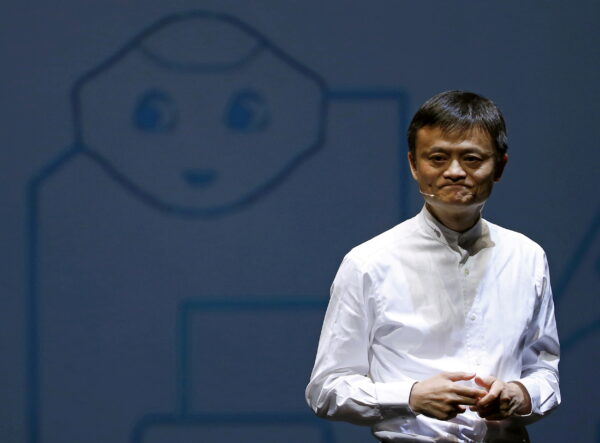
In December 1978, the CCP launched the policy of Reform and Openness to tackle the crisis of political authority. It ramped up private economy development, not only in cities but also in rural areas, allowing privately-owned companies to survive the dominance of the state ownership economy and collective economy.
The private ownership economy has thrived for thousands of years, proving itself a dynamic economy. The CCP limits the expansion of the private economy, with fewer restrictions in some sectors, yet the private economy has shown significant short-term growth and generated a positive influence. As reported by the South China Morning Post, “China’s private economy can be recapitulated by “56789”—contributing 50 percent of tax revenue, 60 percent of gross domestic product, 70 percent of industrial upgrades and innovation, 80 percent of total employment, and 90 percent of the total number of enterprises.”
Nevertheless, the ideology of the CCP under the guidance of Marxism remains. It ostensibly promotes the idea of safeguarding private ownership, but the actual action is otherwise. When necessary, it pockets private property arbitrarily, switching the ownership from private to state for the sake of capital shortage and political concern.
Second: The CCP’s supremacy in the economy.
The bedrock of the CCP’s economic development was built by control over a gun (military) and a knife (politics and law). Private entrepreneurs in China, despite their great wealth, become vulnerable and powerless when faced with the military-backed CCP that is wielding a gun and a knife.
In countries with market economies, a consumer market (which acts as an invisible force) plays the dominant role. Whereas in China, there is no market economy, but rather a visible force—the CCP’s power to rule. The Party leader Xi Jinping has publicly stressed, “The Party exercises overall leadership over all areas of endeavor in every part of the country.” The Party exercises its supremacy in the economy by monopolizing financial sectors, including banking, the stock market, and currency market; resources such as land, minerals, water, taxes, fees, and many others. Private entrepreneurs have to observe the Party’s rules. If they don’t play by the book, they are subject to a great loss of bank loans, land ownership, mining rights, power and water supplies, and tremendous stress from sundry taxes and increased fees imposed by the CCP.
If private entrepreneurs do not meet the CCP’s requirements, it will find any excuse to rob them.
Third: The exacerbation of the CCP’s robberies.
Since 1989, the CCP dictator Jiang Zemin held power in Zhongnanhai, the central headquarters for the CCP, and abused his power. For one thing, Jiang indulged his son, Jiang Mianheng, to take official posts and engage in business. For another thing, he promoted a number of seriously corrupt individuals. The convergence of these two turbulent events led to the malignant development of the CCP’s corruption, turning officialdom into a platform for trading power and money.
To this day, the unspoken rule for promotion and making a fortune in the CCP’s official system is to bribe superior officials. Where does the money come from? Plundering private entrepreneurs is the best solution.
Tong Zhiwei, a professor at the East China University of Political Science and Law, wrote a report on Chongqing’s crackdown on gangs. Tong pointed out that the major targets of the crackdown campaign are private entrepreneurs. Beijing-based defense lawyer Li Zhuang stated that the judgments of the anti-gang crackdowns in Chongqing that he had scrutinized had identical verdicts—confiscation of property.
Fourth: The CCP’s fear of private entrepreneurs’ rebellion.
Did the CCP subvert China’s sovereignty over the Republic of China by fair means or foul? For 72 years, the CCP has never held an election and gained the mandate of the people. It has been practicing strong-arm and deceptive tactics for fear that its illegitimate political power will be overthrown. Accordingly, private entrepreneurs are most likely seen as a potential force to instigate a “subversion of state power” because of their strong financial standing.
Views expressed in this article are the opinions of the author and do not necessarily reflect the views of The Epoch Times.


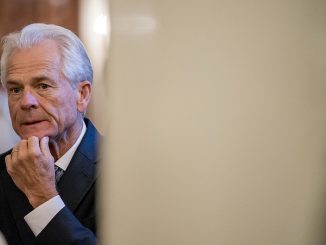
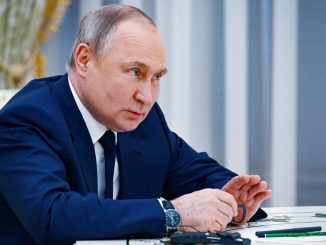

Be the first to comment